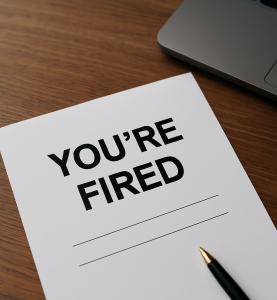As the world comes to grips with Covid-19, the flu-like respiratory disease that originated in China which continues to spread throughout the globe, its impact is beginning to be felt in workplaces worldwide. Some offices have taken the initiative to close and enforced lockdowns, leaving their employees to work from home. In fact, in China alone, sales for second-hand laptops and tablets have spiked, reflecting the impact of remote working.
Reacting to an epidemic is not something all workplaces will be familiar with, which leaves us with the question of what employers and employees should know about their rights and what the best practices are, as the virus impacts the world's global businesses?
What are the recommendations for those at work affected by the Coronavirus?
Edinburgh based employment law specialists Ergo Law has released recommendations to employers and employees on rights if Coronavirus prevents people from travelling to work ; this advice includes steps employers should take now to plan for any potential outbreak and the rights of workers if they are prevented from attending work due to quarantine situations.
Emma Reid, Director at Ergo Law said, “The potential impact of Coronavirus on employers and employees is significant and may require employers to exercise flexibility and a creative approach to working practices. ACAS have been quick off the mark to provide guidance for employers on how to deal with the emerging situation (see https://www.acas.org.uk/coronavirus. ) If an employee catches Coronavirus, this will be treated in the same way as any other sickness absence and the employer’s usual sick pay policy will apply. The situation is more complicated where an employee is not actually sick but has either been advised or has decided to self-isolate. ACAS advises that an employer is under no legal obligation to pay someone who is not sick but who is either self-isolating or has had quarantine imposed; however, it is good practice to treat such absence as sick leave and follow the organisation’s usual sick leave policy. Alternatively, an employer could offer to allow such employees to take the time as paid annual leave. There is obviously also a benefit to the employer in avoiding having potentially infectious employees attend work and spread the virus amongst the workforce.
Employers should be planning now for the possibility of a temporary workplace closure. In those circumstances, it would theoretically be open to employers to require employees to use annual leave to cover the time away from work, but because employees are entitled to minimum periods of notice for required annual leave, this is unlikely to be helpful in the case of an unplanned closure. ACAS suggests that, in the event of temporary business closure, employees would need to be paid as usual. The law in this area is not completely clear, but case law suggests that employees may have a right to be paid in certain circumstances where they are ready and willing to work but prevented from doing so by external events, such as in the case of quarantine or business closure.”
Many businesses will need to ensure that they revisit and review the following policies in light of Coronavirus:
- Flexible Working
- Sick Leave
- Sick Pay Policy
- Absence
- Employee details
- Workplace Sanitation
Employers should consider alternative ways of working, such as allowing staff to work from alternative locations
It appears that with many institutions opting to send employees home from the office for fear of increasing infections, like Chevron, there will be a rise in employees requesting, or needing to work from home to restrict the spread of the virus.
A view echoed by Cathy Donald, Director of Ergo Law who added, “In the current circumstances, employers will need to be mindful of their duty to look after the health and safety of employees while balancing this against the need for business continuity. Employers should consider alternative ways of working, such as allowing staff to work from alternative locations, or perhaps consider offering a limited amount of paid leave to all staff. Employees will want clarity about how their employer intends to deal with any potential disruption and employers should ensure that managers are clear on workplace sickness and absence procedures. In practical terms, employers should ensure that staff contact and emergency details are up to date and should also implement NHS advice encouraging staff to wash hands frequently and consider providing hand sanitizers and masks in the workplace, if not already in place.
Situations like these bring to the fore the merits of flexible working in terms of carrying on business as usual, limiting travel and restricting the spread of the virus in the workplace.”
Others have suggested businesses go further with their flexible approach to the current health concerns, Chris Phillips of Thorntons, a leading Scottish employment lawyer has advised companies to continue to pay staff if they are quarantined by a Coronavirus outbreak.
Recent government advice to people returning from 11 affected towns in Northern Italy is to self-isolate for 14 days, if they have symptoms. This has raised questions about eligibility for sick pay and what employee’s rights might be more generally. Equally, employers are wondering how they can keep their organisations going where key employees are in self-imposed quarantine. While employees are only legally entitled to statutory sick pay (or contractual sick pay if that applies) if they are unwell, the consequences of potentially-infected staff coming in to work far outweighs any concerns about pay.
He said: “The responsible thing to do is to pay staff if having identified a possible risk of infection, it makes sense for them to remain at home for a period even if they seem well. The potential consequences of not doing so are far worse if a highly contagious condition like coronavirus then spreads throughout the workforce through a worker who cannot afford to stay away if they aren’t paid.
“Of course, if staff can work from home then this makes sense as they can remain both quarantined and productive. But that isn’t going to work for everyone, particularly if they are involved in manufacturing or service industries where a physical presence is part and parcel of the job.
“If an employer instructs staff not to attend work for whatever reason, then they should normally continue to pay wages if they are otherwise willing and able to attend work. If you choose to follow government advice having been in a risk area, you should talk to your employer and agree a sensible plan of action. If everyone acts responsibly, this situation should remain contained and will not have a significant impact for most employers.”
With Belarus, Nigeria and the Netherlands announcing the first cases of Covid-19 this morning, how far and how long the current spread of Coronavirus lasts for it remains to be seen. But it will be vital for businesses to create a clear plan of action and ensure constant communication and clarity with their employees to ensure the least amount of disruption to their workplaces.





















